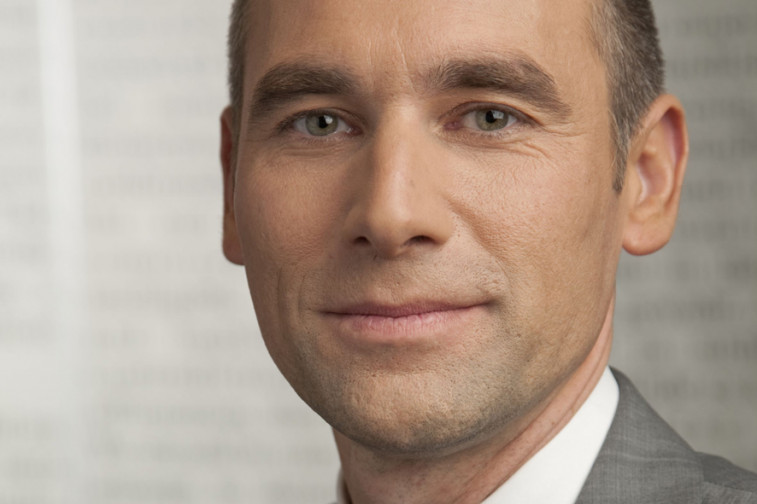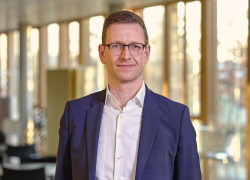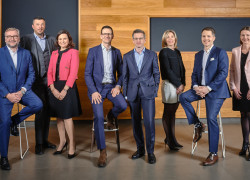PwC - Finding the balance of social and economic strengths to attract talent to cities
Today’s urban professionals want to live in cities with strong reputations for developing intellectual capital and innovation
People are seeking new opportunities in cities, so the world is getting smaller. In order to attract the talent cities need to maintain a competitive advantage and thrive, cities need to have the foresight necessary to invest in infrastructure and other areas that will help individuals not only maintain high morale and quality of life, but succeed both in their careers and personally
Philippe Pierre, Partner and Public Sector Leader, PwC Luxembourg
Today’s urban professionals want to live in cities with strong reputations for developing intellectual capital and innovation, as well as high marks for employment prospects and quality of life, according to a new PwC study, Cities of Opportunity 6: We, the urban people.
After releasing the ranking of 30 global capitals of Business, Finance and Culture, with London marching to the top, followed by New York City and Singapore, the study focuses on urban demographics. It includes findings from a global survey of 15,000 PwC staff, providing an in-depth look at what matters most to working professionals in the cities where they live.
The study examines critical urban qualities, commuting, likelihood of remaining in the city, preferences for relocation, and spending patterns. It also provides leaders in business, government and education with an understanding of how to develop strategies to advance the well-being of urban people and communities.
"People are seeking new opportunities in cities, so the world is getting smaller. In order to attract the talent cities need to maintain a competitive advantage and thrive, cities need to have the foresight necessary to invest in infrastructure and other areas that will help individuals not only maintain high morale and quality of life, but succeed both in their careers and personally”, says Philippe Pierre, Partner and Public Sector Leader, PwC Luxembourg.
“Despite its modest size compared to the 30 cities that were considered for this study, Luxembourg boasts excellent results in terms of economic clout. The country ranked 11th in the IMD World Competitiveness Scoreboard 2014 . The city of Luxembourg came in first position on two major indicators of the European Cities Regions of the Future conducted by fDi Intelligence: economic potential and infrastructure ” adds Philippe Pierre.
What Matters Most
PwC’s study confirms that skilled professionals in the prime of their careers want to live and work in urban centres that offer the greatest employment opportunities and strong social attributes. Friends and family was cited as the most critical trait to have in a city by 29% of respondents. That was followed by employment prospects at 23% and safety and security at 14%.
Relocation preferences also parallel the desire for social and economic balance. London and New York were named as the top two choices by the individuals surveyed if they were to work in any other of the 30 cities featured (with 20% and 18% choosing the two cities, respectively). Cities with strong showings in the demographics and liveability indicator also fared well as Sydney, San Francisco and Paris rounded out the top five first-choice preferences for relocation, attracting 10%, 9% and 5% of responses, respectively.
Affordability was cited by 28% of respondents as most needing improvement in their city. Transportation infrastructure was the second most universal complaint noted by 24%.
Commuting
Among transportation modes included in the commute, 39% take the subway, 26% drive their cars and 24% take the bus. 17% walk, 3% bike to work and 2% ride a motorcycle, and these are the people who were most pleased with the ease of their commutes. Those who drive or take the train say they have the most difficult commute. PwC people in Stockholm and San Francisco rate their commute as easiest among the 30 cities.
The Impact of Demographic Shifts
The growing numbers of elderly urban dwellers also figure prominently in demographic shifts the world is witnessing. For instance, about a quarter of the population in cities like Milan and Tokyo will be over 67 by 2025 (26% and 23%, respectively). And today, more than two-thirds of our 30 cities have two or less active workers for each non-working dependent.
As part of its study, PwC examined how a “greying planet” could create new urban economic challenges at the same time, as cities have the potential to use their densities to effectively serve aging demographics and businesses have the opportunity to serve new markets in healthy longevity.
Communiqués liés
Emerging Trends in Real Estate®: Europe 2024
According to the latest Emerging Trends in Real Estate® Europe report from PwC ...
PwC Luxembourg: Best ESG (Environmental, Social and Governan...
The CFI.co judges have conferred on PwC Luxembourg the 2023 award for Best ESG (...
New Managing Partner and the Country Leadership Team for PwC...
It is with great pleasure that PwC Luxembourg announces that François Mousel as...
Use of Data Analytics and Artificial Intelligence in Luxembo...
PwC Luxembourg has just released the results of its survey: “Use of Data Analy...
Growing for the future: 18 New Partners and 5 Managing Direc...
With a record number of promotions, PwC Luxembourg is proud to announce the admi...
PwC Luxembourg publishes The SFDR Barometer for Management C...
PwC Luxembourg publishes The SFDR Barometer for Management Companies.
Il n'y a aucun résultat pour votre recherche







